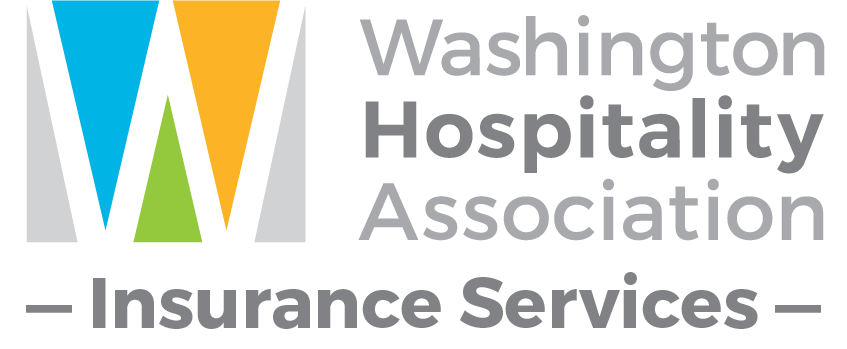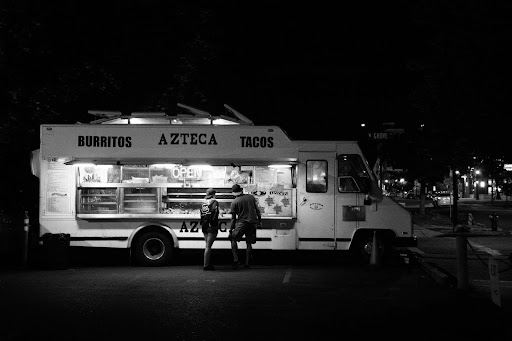Navigating Food Truck Insurance in Washington State and Beyond
Your journey in the food truck industry probably began with a love for creating delicious dishes and a vision to share them with the world. Delightful aromas drifting from your food truck, the smiles of satisfied customers – that’s the payoff for your hard work and culinary skills!
Strategic planning likely came next. From selecting prime locations to crafting an enticing menu, each decision is critical to your business’s growth. Amidst all this, it’s easy to overlook the importance of safeguarding your business with food truck insurance.
This comprehensive coverage acts as a safety net, shielding your business from unforeseen financial setbacks or legal liabilities. Imagine facing an unexpected equipment breakdown during a busy weekend. The repair costs, coupled with the loss of revenue during downtime, can introduce significant financial strain, slowing down your small business. Food truck insurance provides coverage to ensure you are protected in these kinds of situations.
Whether you’re a seasoned pro or just starting your food truck journey, join us as we explore the national landscape of food truck and food trailer insurance. We’ll highlight what having insurance can do for you while offering insights specific to Washington state regulations, allowing you to focus on what matters most: serving up mouthwatering dishes.
Understanding Common Risks Food Truck Businesses Face
Like any venture, food trucks are not immune to risks. However, understanding the risks enables you to take proactive measures to mitigate preventable consequences.
- Liability Risks: Despite safety measures, the risk of foodborne illnesses is ever-present. So are customer accidents including slips or falls around the food truck that can lead to liability claims.
- Property Risks: These include equipment breakdowns and vehicle damage, theft, or vandalism.
- Personnel Issues: Worker injuries during food preparation or customer interactions pose an insurance risk and can impact business continuity.
- Financial Constraints: Variable ingredient, fuel, and maintenance costs affect profit margins.
- Regulatory Risks: Non-compliance with health and safety regulations can result in fines or closure.
- External Risks: Outdoor operations make food trucks vulnerable to weather conditions affecting customer turnout. Economic uncertainties also impact consumer spending, affecting financial stability.
Types of Food Truck Insurance
Food trailer coverage is tailored to the unique risks faced by mobile culinary businesses. Here are the types of insurance for food truck owners:
General Liability Insurance
Protects you from financial losses due to third-party injuries, property damage, and even advertising injuries (e.g., allergic reactions). This coverage is essential for safeguarding against customer slips, spills, or allergic reactions.
Commercial Umbrella Insurance
Provides additional liability coverage beyond the limits of your primary liability policies, offering an extra layer of protection against catastrophic events and high-dollar lawsuits.
Commercial Auto Insurance
Your food truck is your mobile kitchen, so keeping it protected is crucial. This insurance covers collisions, theft, vandalism, and weather damage.
Commercial Property Insurance
This safeguards your equipment, inventory, and even the physical structure of your truck against theft, fire, vandalism, and weather events. Imagine a power outage ruining your ingredients. Rather than rushing for a cash advance, this insurance helps you bounce back without losing everything.
Workers’ Compensation Insurance
If you have employees, this insurance is mandatory in many states, including Washington. It provides medical expenses and lost wages to employees who are injured or become ill while performing their job duties.
Equipment Breakdown Insurance
Freezers failing? Fryers malfunctioning? These breakdowns disrupt operations, which can cost you dearly. This insurance covers repair or replacement costs, minimizing the financial impact when equipment breaks down.
Business Interruption Insurance
Imagine having to close your truck due to a fire or natural disaster. This insurance reimburses lost income and helps you cover essential expenses to get back on your feet faster.
Foodborne Illness Insurance
Unfortunately, even with the utmost care, foodborne illness can occur. This insurance helps cover medical costs, legal fees, and lost revenue if an incident arises, giving you peace of mind and financial protection.
Liquor Liability Insurance
If you plan to serve alcoholic beverages, this specialized cover protects you from liability claims arising from alcohol-related incidents.
Note: This is not an exhaustive list, and your needs may vary depending on your location, operations, and menu. It’s best to research insurance plans to create customized coverage that protects your food truck against the risks specific to your business.
Food Truck Insurance Cost Considerations
The cost of food truck insurance is determined by several factors. These include:
Location of Business
Operating in a densely populated urban area may incur higher insurance costs due to increased risks, traffic, and higher customer interactions.
Types of Coverage You Choose
Each food truck cover you choose contributes to the overall cost. While covers like general liability and commercial auto are non-negotiable, consider carefully if additional options like foodborne illness are included.
Policy Limits
Higher coverage limits for liability or property damage naturally translate to higher premiums. Evaluate your potential risks and choose limits that offer adequate protection without overspending.
Deductibles
This is the amount you pay out of pocket before insurance kicks in. Opting for a higher deductible lowers your premium, but be prepared to shoulder more upfront costs in case of a claim.
Value of Your Equipment
The overall value of your food truck and its equipment helps insurance companies calculate the premiums you pay. High-value equipment attracts higher premiums. Fortunately, there are credible credit facilities that provide business loans to food businesses.
Claims History
A history of frequent claims may lead to higher premiums. Maintaining a good claims record demonstrates good risk management practices.
Partnering for Success: Tailored Food Truck Insurance Solutions
Dedicated to people, service, advocacy, and community, the Washington Hospitality Association is committed to safeguarding and enhancing the success of your business. With a deep-rooted connection to the local community, we grasp the distinctive challenges encountered by businesses like yours and strive to deliver customized insurance solutions tailored to your food truck’s specific needs.

